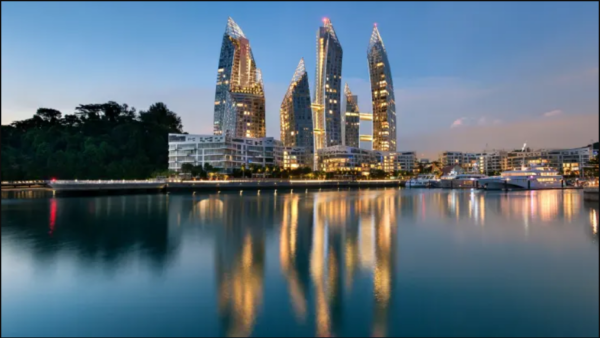
Home rental rates in Singapore continue to rise, hurting foreign residents.
Long-term expats in Singapore are paying more and making big changes to deal with rising rents.
In 2022, all private residential property prices rose 29.7% year-on-year, the most since 2007.
Some immigrants believe their landlords are taking advantage of an overheated property market to double rent.
Christine Li, head of Asia-Pacific research at Knight Frank, said landlords may expect double-digit rent increases despite a slowdown.
“If rents keep rising steadily, more people will bite the bullet and buy a property before paying higher rent,” she added.

Some industry analysts predict lower costs in the fall.
“Relief is expected only from the second half of 2023 when the slowing economy and the fallout in the tech sector starts to work its way through the demand side of the rental market,” said Savills Singapore executive director of research and consultancy Alan Cheong.
He told CNBC that even if rents corrected, it may be moderate and unlikely to reverse the gain since 2021.
How ex-pats cope
Many expats in Singapore are seeking to avoid rising rents since landlords are charging more than market prices.
Francesca, a family-living Indonesian expat in Singapore, will lose her lease this month. Her landlord demanded double the cost to extend her lease at the start of the year.
The 34-year-old stated her landlord originally requested a 60% rent increase, then 100%.
When we bargain, he raises the price. Francesca added, “We were really pissed off because it was just not fair,” noting that there were brand-new apartments with nicer facilities a street away for less than her landlord had asked for.
All expatriates questioned for this report declined to give their full names.
Moving.
Francesca claimed she saw $10,000 flats in Orchard that “looked like they belong in a horror movie” when searching for a cheaper house.
“I’ll film a horror movie there, but I won’t live there,” she laughed.
Francesca said numerous landlords gave her “rent free deals” for the first few months to get her to pay greater costs.
“This usually happens when somebody owns multiple properties and hopes if they can raise the rent on one, they can do so with the others,” she said.
Possible emigration
Another Singapore expat, Debbie, received a flexible contract.
In December, the 42-year-old’s River Valley apartment rent rose from $9,250 to $13,200.

She was outraged by the 42% increase, but the contract permits her to terminate the lease with three months’ notice “as long as we leave the country.”
“I didn’t want to move for a short time in case we were leaving,” she remarked. Our landlord capitalized on our desperation.
Debbie pondered leaving Singapore since her husband’s salary had “stayed exactly the same.”
“We have three children in international schools and the cost of living is rising quickly. She suggested moving home despite New Zealand’s higher tax rate.
Her family stayed but cut back on eating out and cabs.
Instead of the 100% increase her landlord proposed, Francesca found a unit in the same Orchard condominium community for 50% more than she presently pays.
Reduce
Not everyone was so lucky.
Melinda pondered returning to the U.S. after her landlord proposed a 110% rent increase for her seven-bedroom Bukit Timah property. Her neighbor moved to Penang, Malaysia, in the same circumstances.
Melinda downsized rather than uproot her two Singaporean children.
She lives on Orchard Road, where she resided a decade ago.
Thankfully, her rent has dropped since she moved in a decade ago.
Buying property
Singapore permanent resident Kristen faced a unique position.
Kristen’s five-person family resided in Bukit Timah from 2019 to 2022. Late last year, her rent rose from $9,000 to $15,000, without aircon servicing, lawn upkeep, or pool cleaning.
I cried because I thought we’d be there forever. “But we couldn’t afford it, there’s no way,” claimed the mother of two.
“Buying a property made sense when we did the math,” she added. Her monthly private apartment mortgage is $11,000.
Kristen, a property agent, told CNBC that renters compete.
“I can’t show my clients properties on Monday, Wednesday, and Friday like I used to,” she added. If prospective renters like a home, they must lock it in promptly or “it’s going to be gone by Friday.”
What’s raising prices?
Experts cited pandemic impacts and other factors for rising rents.
“A confluence of factors ranging from Gen Y and Z’s wanting to break away from their parents to work in [the] privacy from their own home, to an influx of foreign professionals, had driven demand,” said Savills’ Cheong.
Knight Frank’s Li said immigrants fleeing China and Hong Kong came to Singapore, boosting its “safe haven” status.
Demand and labor shortages in the building business during the epidemic caused delays, worsening housing market inventory concerns.
Cheong highlighted that the pandemic had delayed new completions, resulting in a constrained rental housing supply.
